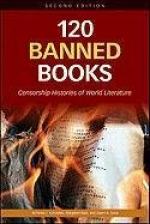|
This section contains 541 words (approx. 2 pages at 300 words per page) |

|
FROM THE BEGINNING of history, people have recognized the power of words to influence lives and shape events. Usually this power is a good thing. A free exchange of ideas has led to progress in religion, the arts, science, and politics. Many of history's most important figures are remembered not only for what they did, but also for what they said. Moses, Shakespeare, Galileo, Jefferson—these are just a few of the people whose words have enlightened and inspired countless people, enriching civilization as a whole.
Unfortunately, history has shown that words can be used for ill as well as for good, to destroy lives as well as to enhance them. It all depends upon the person using the words. For example, Adolf Hitler used a gift for public speaking and a well-organized propaganda campaign to discredit his critics and rally support for his plan to rid...
|
This section contains 541 words (approx. 2 pages at 300 words per page) |

|



